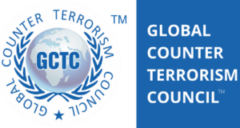No discussion on the original vision for the Indian state can be addressed without grasping the key principle of secularism and understanding the context in which the civil code was designed. Looking back seven decades to the constitutional moment, the constituent assembly was confronted with a vital question in an already deeply divided society; one that asked how an equilibrium could be reached between establishing legal uniformity whilst accounting for different religious practices. To prevent the debate around the civil code from becoming an inhibition to forming the Republic, the decision was postponed to a time in the future when the institutions and
establishments of a potentially more united India could reach a consensus. 72 years later, as the BJP proposes the Uniformed Civil Code (UCC) in their election manifesto, and the parliament outlaws the Shariat law of unilateral divorce, the very same question comes to light, with equal pertinence and potency.
India, unlike many of its neighbours, has a fundamental separation between state and religion. The country has taken a more pluralistic approach to this separation by carefully constructing a civil code that allows for variety between the different religious groups. However, this decision has many pit-falls – the obvious one being a lack of consistency in the law for the equal citizens of India. Moreover, if Hindu law can be viewed from the Mayukha, Mithakshara and Dayabhag schools of thought, then one can see that even within a religion, the regulation of personal life in different communities can vary. The current civil code is a convoluted nexus of inconsistent laws that can in no way apply to each and every specific religious directive; instead, we need a universal code that can apply to all Indians overarchingly.
Further, we need to question whether maintaining traditional laws at the state level is even relevant in the modern day. We no longer apply punishments from religious books like flogging and castration in criminal law. If our society has moved past certain archaic traditions then they should not be included in our civil code either. Even a religious state, like Pakistan, has moved away from
traditional inheritance laws. If religious law is a personal direction on moral values for an individual then it does not need to be reflected into state legislature. If faithful, the individual can still practice their own religious beliefs within their own community and family. These considerations point to one key element – religion and personal law are by and large independent from one another.
Lawyer and independence activist, KM Munshi alluded to this idea when he said, “the sooner we forget this isolationist outlook on life, it will be better for the country. Religion must be restricted to spheres that legitimately appertain to religion, and the rest of life must be regulated, unified, and modified in such a manner that we may evolve, as early as possible a strong and consolidated
nation. Are we helping those factors which help the welding together into a single nation, or is this country to be kept up always as a series of competing communities?”
Let us look at the Sabrimala Temple case where the Supreme Court, upholding the principle of equality between genders, permitted women to enter a temple that was traditionally only accessible to men. This shows that equality of gender is a value enshrined in the constitution that is shared by all regardless of religion. This proves that religious values such as biased inheritance or succession laws will not always be cohesive with gender equality under the constitution. Therefore, the traditional critique of UCC that claims that it will infringe on Articles 25 and 26 of the Constitution, guaranteeing freedom of religion, is not valid because the articles are limited to those that will not harm public order. In fact, the UCC will uphold the constitution by allowing for freedom of religious practices in so far as they do not harm the public by their discord with higher norms, such as gender equality. Surely we can agree it is unacceptable for religious communities to vehemently insist on their right to subordinate a certain gender by harking back to age-old traditions.
To conclude, I will acknowledge a very legitimate concern in relation to establishing a UCC. A uniformed code could easily end up representing solely the will of the majority. This is not a reason to cast aside the UCC. Instead, our country should strive to produce a universally acceptable code by opening the debate on a much larger scale in academic forums and ensuring the involvement of a diverse collection of representatives in the legislative process. Perhaps, it could be advantageous to set up a special committee for the establishment of a UCC to prevent the biases of a parliamentary majority from creating an under-representative bill. As the UCC concerns the personal lives of many and the emotional topic of religion, it should be approached with conciliation and sensitivity to convince the wider public and religious communities of its logical sense.




